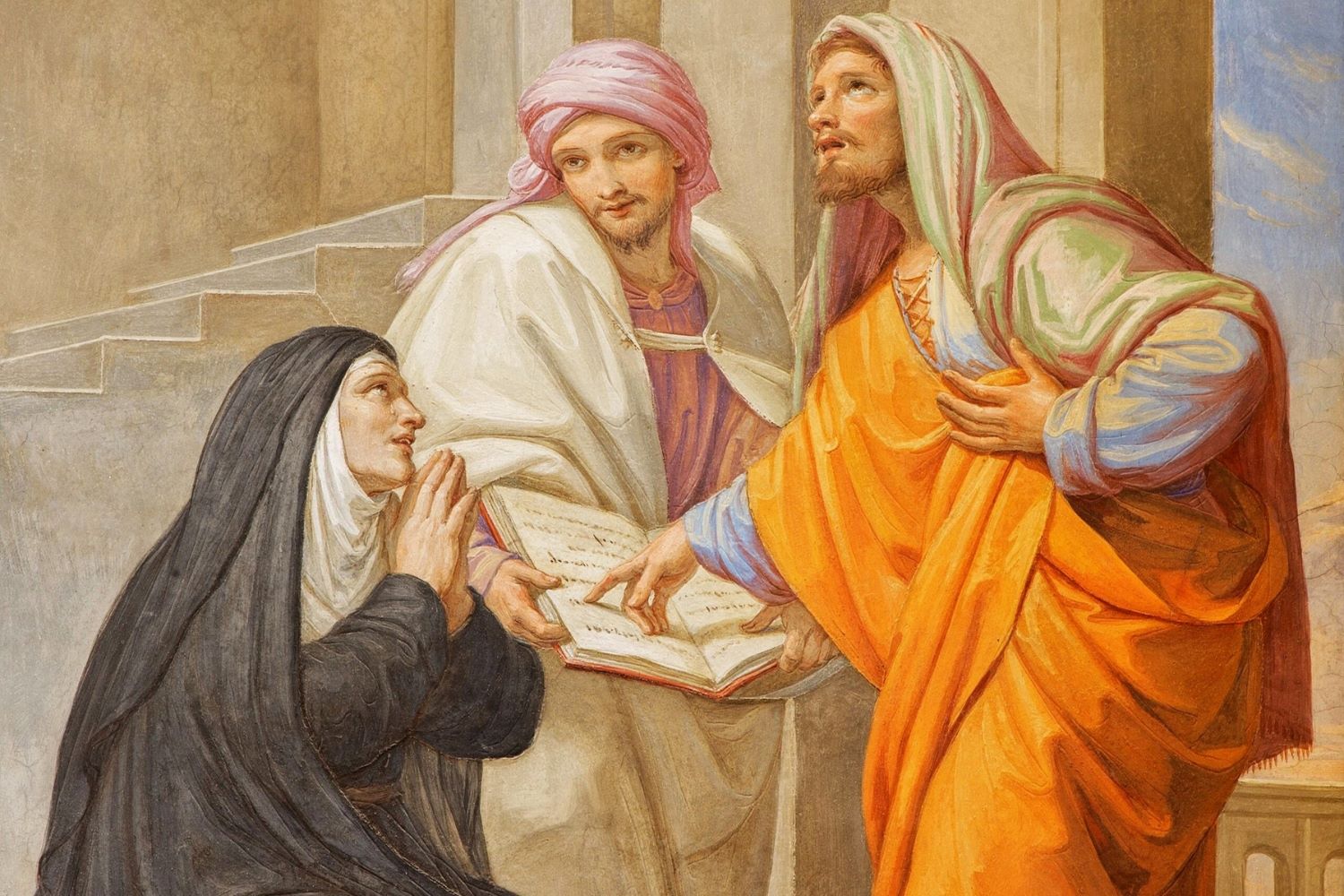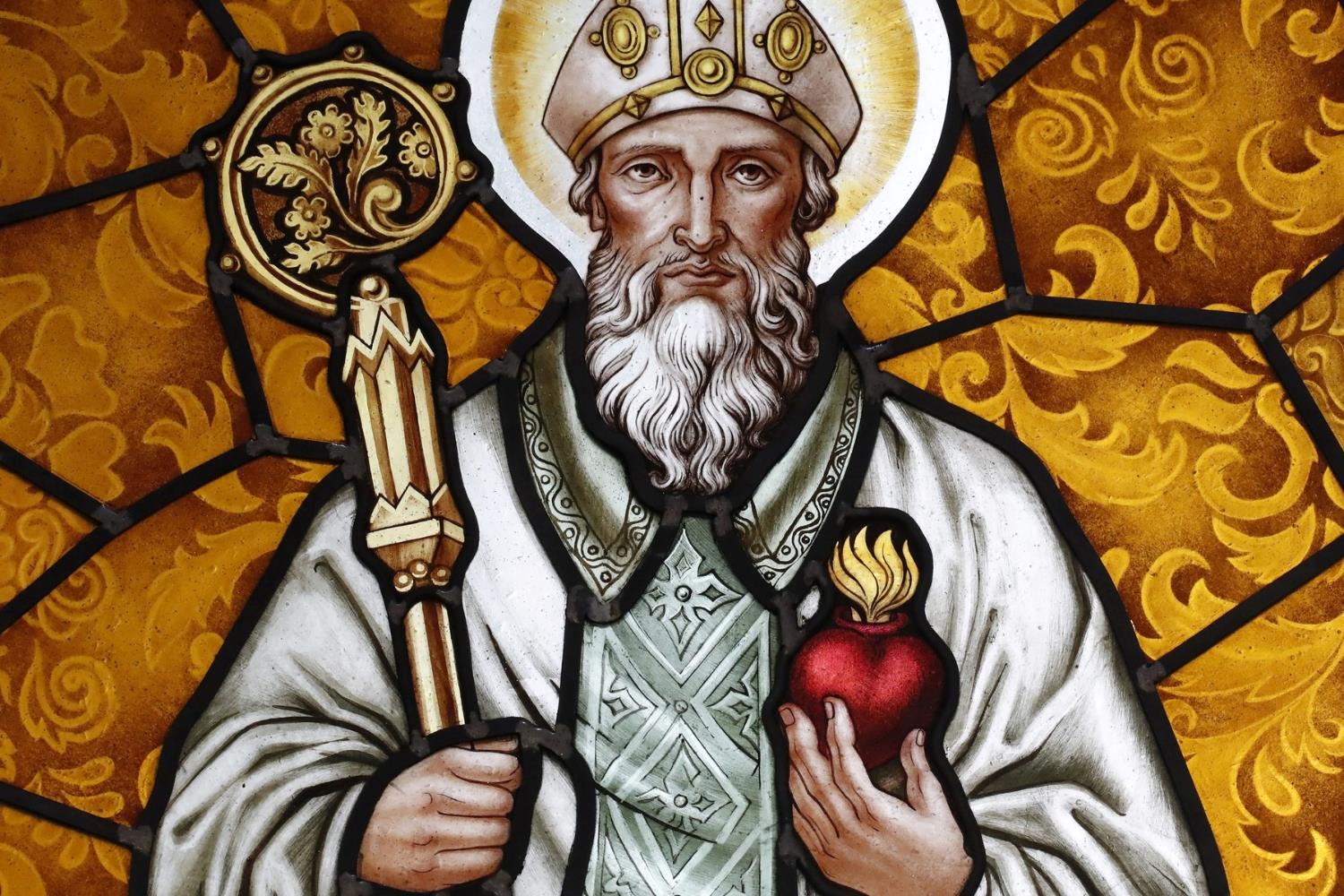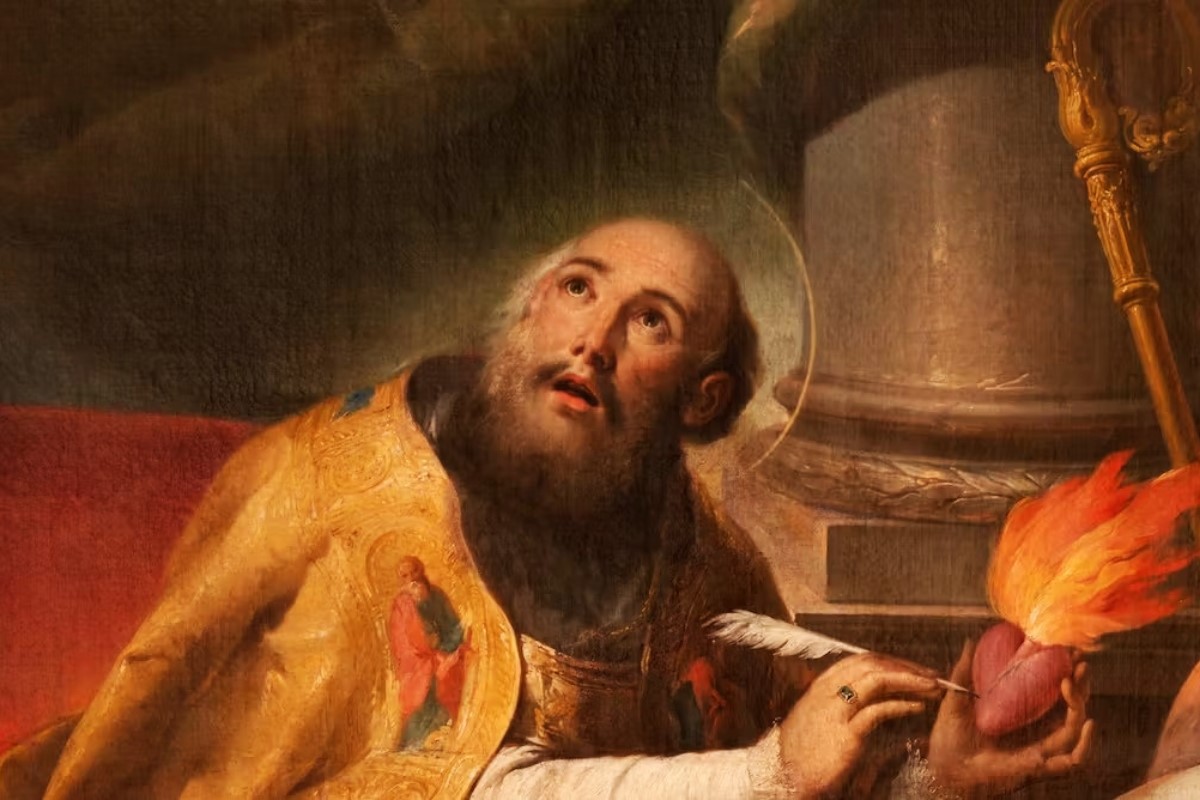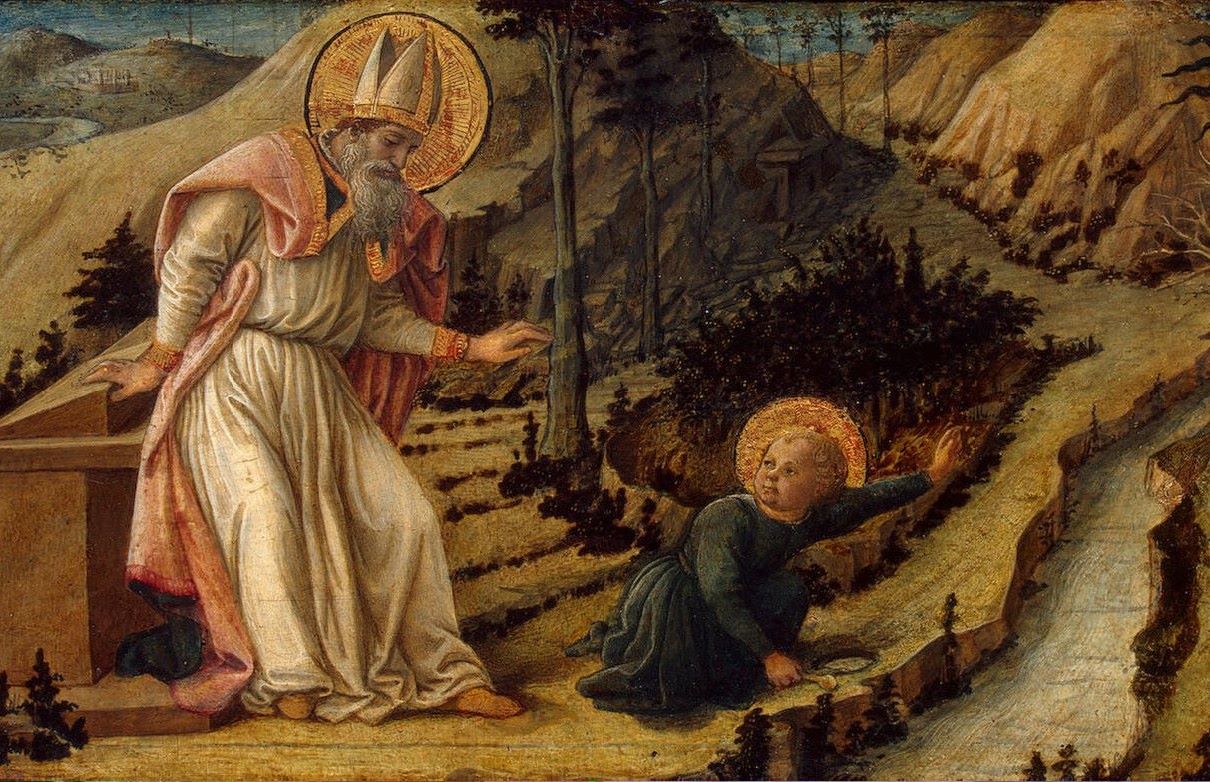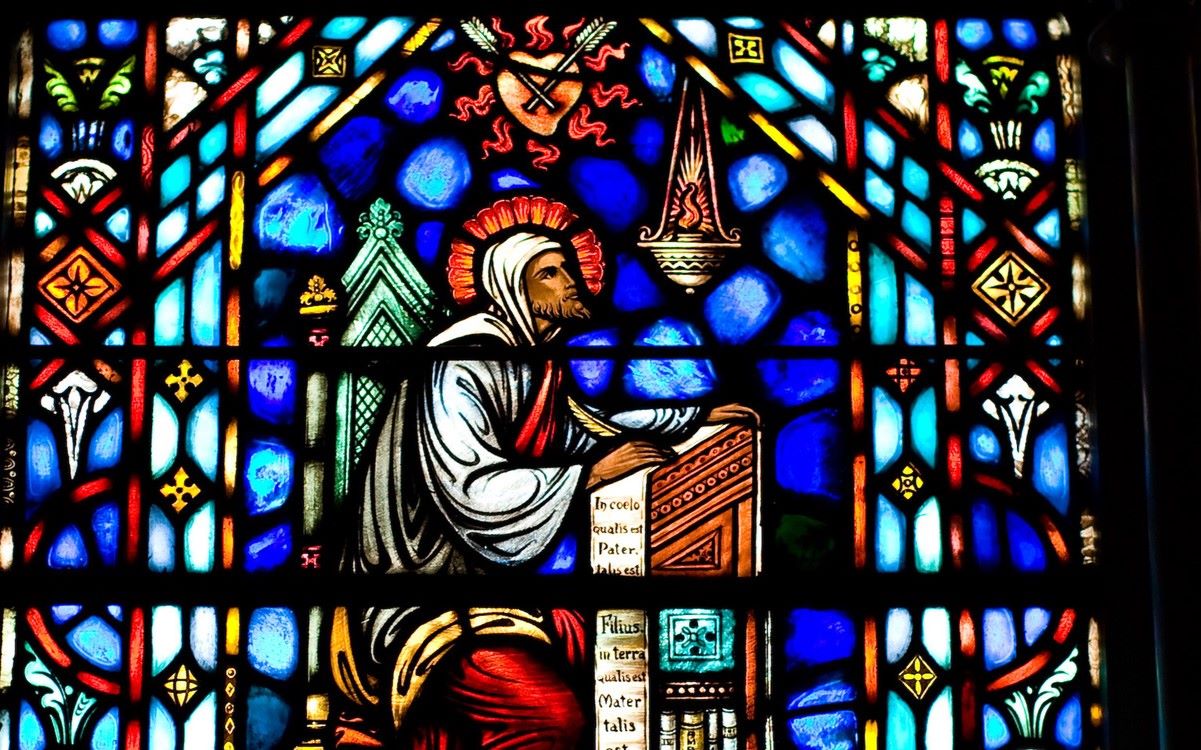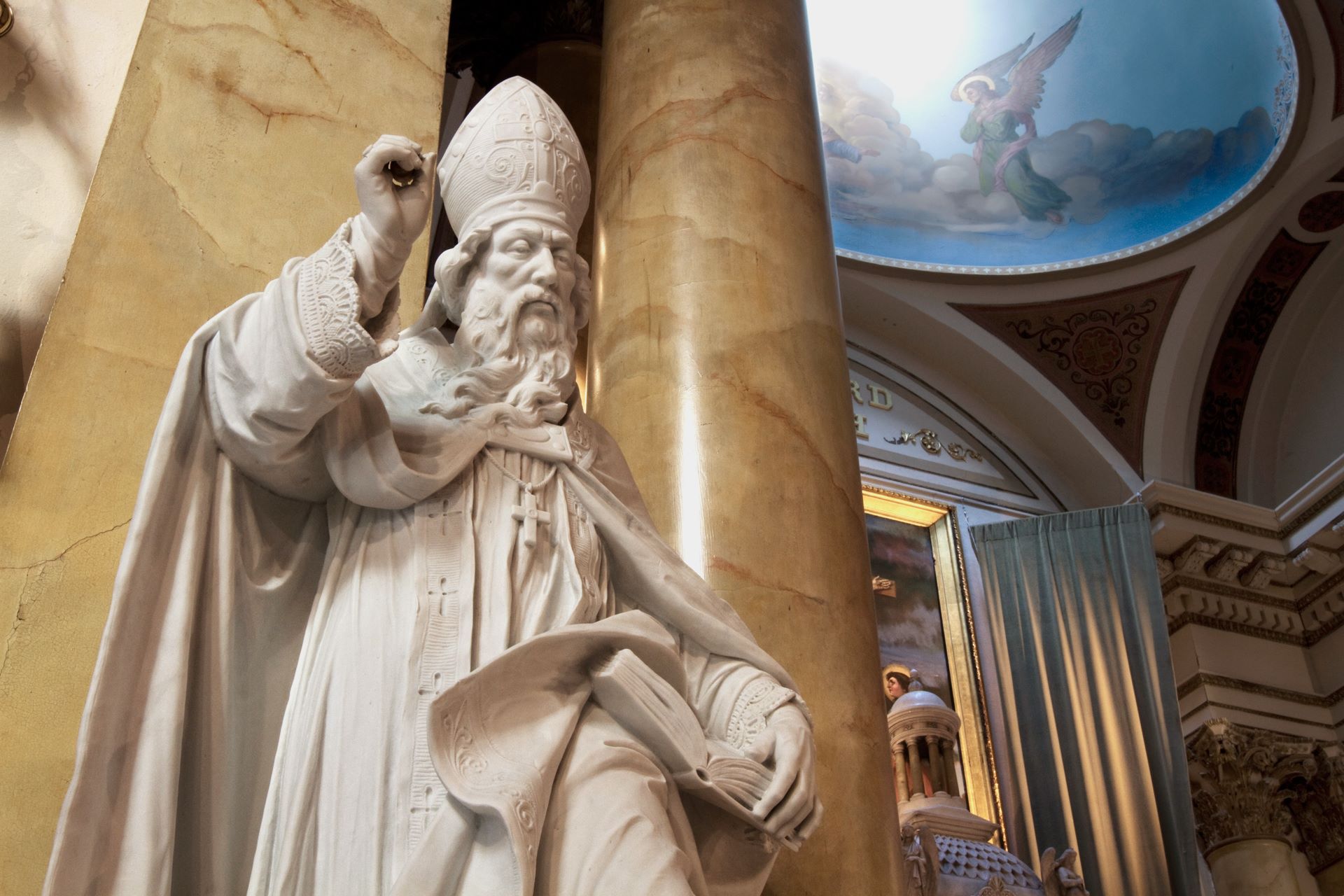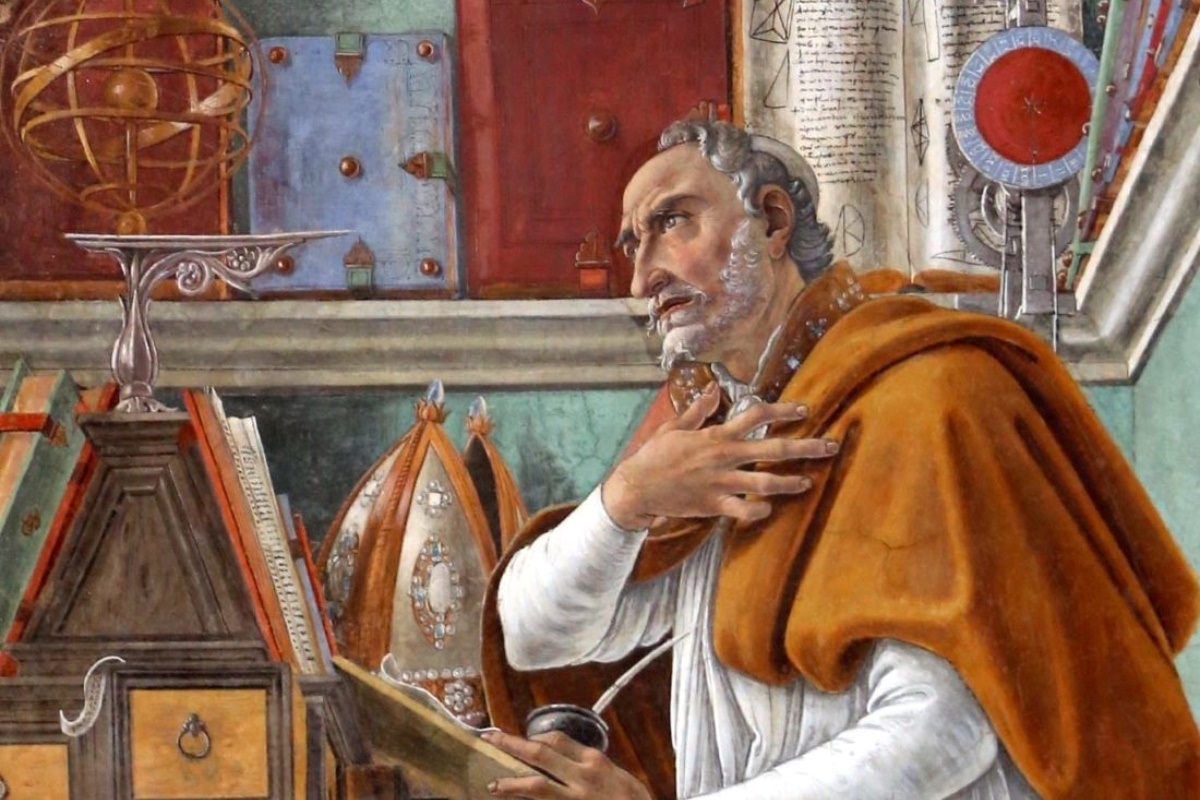Home>Theology and Spirituality>Where Was Augustine A Teacher Of Rhetoric
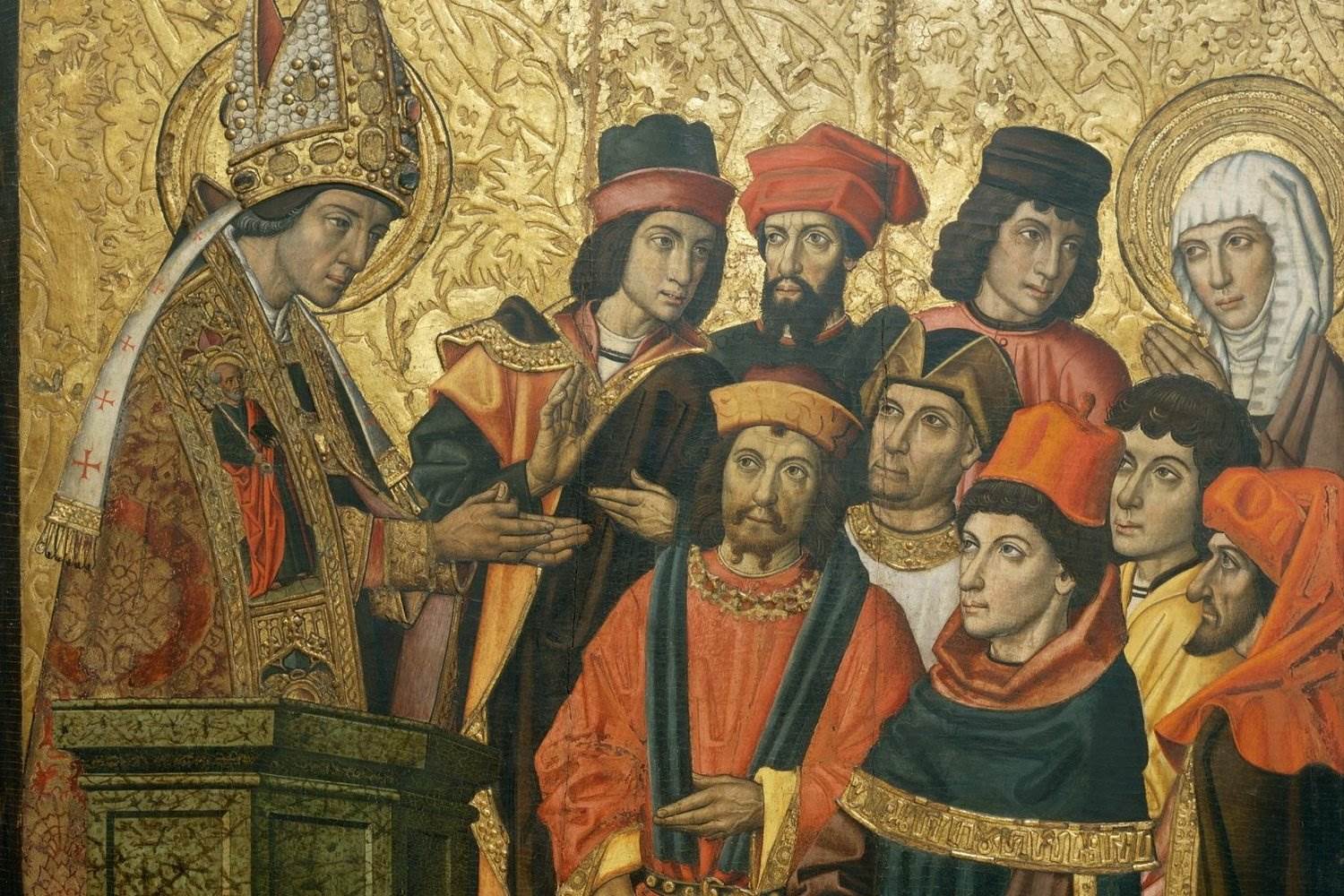

Theology and Spirituality
Where Was Augustine A Teacher Of Rhetoric
Published: February 10, 2024
Jason DeRose, Managing Editor at Christian.net, uses his expertise in religion and journalism to deepen understanding of faith's societal impacts. His editorial leadership, coupled with a strong academic background, enriches the platform’s diverse content, earning him recognition in both journalism and religious circles.
Discover where Augustine taught rhetoric and explore the intersection of theology and spirituality in his life and teachings. Uncover the influence of his rhetorical background on his theological perspectives.
(Many of the links in this article redirect to a specific reviewed product. Your purchase of these products through affiliate links helps to generate commission for Christian.net, at no extra cost. Learn more)
Table of Contents
Introduction
Augustine of Hippo, also known as Saint Augustine, was a pivotal figure in the development of Western Christianity and a profoundly influential theologian. His life and teachings continue to inspire and shape the beliefs of countless individuals around the world. One significant aspect of Augustine's early life was his role as a teacher of rhetoric, a skill that would later influence his approach to theological discourse.
Augustine's journey from a young rhetorician to a revered Christian thinker is a testament to the transformative power of faith and intellectual inquiry. By delving into the details of his formative years and the pivotal moments that shaped his spiritual and intellectual evolution, we gain a deeper understanding of the man behind the influential writings and teachings that continue to resonate with believers and scholars alike.
In this article, we will explore Augustine's early life and education, his experience as a rhetoric teacher in Carthage, his subsequent move to Rome and Milan, and the profound influence of Ambrose, the Bishop of Milan, on his conversion to Christianity. By examining these key stages in Augustine's life, we can appreciate the profound impact of his rhetorical background on his theological contributions and the enduring legacy of his teachings.
Read more: Where Did Augustine Live
Augustine's Early Life and Education
Augustine of Hippo, born Aurelius Augustinus, in 354 AD in Thagaste, a provincial Roman city in North Africa (present-day Algeria), was raised in a family with modest means. His father, Patricius, was a pagan and a minor municipal official, while his mother, Monica, was a devout Christian. This religious dichotomy would later play a significant role in shaping Augustine's spiritual journey.
From an early age, Augustine displayed exceptional intellectual acumen and a voracious appetite for learning. His parents, particularly his mother, Monica, recognized his potential and ensured that he received a quality education. Augustine's early education was primarily focused on literature, Latin, and Greek, laying the foundation for his future pursuits in rhetoric and philosophy.
At the age of 16, Augustine traveled to Carthage to pursue further studies. It was in Carthage, a bustling center of learning and culture in the Roman Empire, where he first encountered the art of rhetoric. Rhetoric, the art of persuasive speaking and writing, captivated Augustine, and he soon immersed himself in its study. His mastery of rhetoric would later become a defining aspect of his intellectual and theological endeavors.
During his time in Carthage, Augustine also delved into the teachings of the Manichaean religion, a dualistic faith that would profoundly influence him for a time. His exposure to the Manichaean beliefs and his fervent pursuit of knowledge led him to question traditional Christian teachings, setting the stage for a period of spiritual exploration and philosophical inquiry.
Augustine's formative years were marked by a relentless pursuit of knowledge and a deepening awareness of the complexities of faith and reason. His early education, coupled with his exposure to diverse philosophical and religious ideologies, laid the groundwork for his future contributions to theology and philosophy.
As we delve into Augustine's early life and education, we gain insight into the formative experiences that would shape his intellectual pursuits and spiritual odyssey. These foundational years set the stage for his eventual transformation from a gifted young scholar to one of the most influential figures in the history of Christianity.
Teaching Rhetoric in Carthage
Teaching rhetoric in Carthage marked a significant chapter in Augustine's formative years. Upon arriving in Carthage to pursue further studies, Augustine's encounter with the art of rhetoric proved to be a transformative experience. Rhetoric, the art of persuasive speaking and writing, captivated the young Augustine, igniting a passion that would shape his future intellectual pursuits and theological contributions.
Under the guidance of distinguished rhetoric instructors in Carthage, Augustine honed his oratorical skills and developed a deep appreciation for the power of persuasive discourse. The study of rhetoric not only equipped him with the tools to communicate effectively but also instilled in him a profound understanding of the nuances of language and argumentation.
As a young rhetorician, Augustine immersed himself in the intricacies of rhetorical theory and practice, mastering the art of crafting compelling speeches and persuasive arguments. His eloquence and command of language garnered admiration and acclaim among his peers, establishing him as a promising figure in the realm of rhetoric.
The study and teaching of rhetoric in Carthage provided Augustine with a platform to engage in intellectual discourse and refine his ability to articulate complex ideas with clarity and conviction. This formative period not only cultivated his rhetorical prowess but also laid the groundwork for his future endeavors as a renowned orator and influential writer.
Moreover, the exposure to diverse perspectives and the clash of ideas in the vibrant intellectual milieu of Carthage broadened Augustine's intellectual horizons, fueling his insatiable quest for knowledge and understanding. The dynamic environment of Carthage, characterized by intellectual ferment and cultural diversity, enriched Augustine's intellectual development and nurtured his inquisitive spirit.
Teaching rhetoric in Carthage was a pivotal phase in Augustine's journey, shaping his rhetorical acumen and laying the foundation for his future theological pursuits. The skills and insights he gained during this formative period would profoundly influence his approach to theological discourse and contribute to the enduring impact of his writings and teachings.
In essence, Augustine's experience as a rhetoric teacher in Carthage not only honed his oratorical skills but also provided a fertile ground for the cultivation of his intellectual and spiritual growth, setting the stage for the remarkable trajectory that would define his legacy as a theologian and philosopher.
Moving to Rome and Milan
After his tenure as a rhetoric teacher in Carthage, Augustine embarked on a pivotal journey that would significantly shape his intellectual and spiritual trajectory. His relocation to Rome marked a crucial juncture in his life, as he sought to expand his intellectual horizons and engage with the vibrant intellectual milieu of the imperial capital.
In Rome, Augustine encountered a rich tapestry of philosophical discourse and cultural diversity, immersing himself in the intellectual ferment that characterized the city. The cosmopolitan atmosphere of Rome provided him with a fertile ground for intellectual exchange and exposed him to diverse schools of thought, further enriching his philosophical outlook and broadening his intellectual pursuits.
However, it was Augustine's subsequent move to Milan that would prove to be a transformative phase in his life. In Milan, he encountered the influential figure of Ambrose, the charismatic Bishop of Milan and a renowned orator. Augustine's interactions with Ambrose, known for his eloquence and profound theological insights, left an indelible mark on the young scholar.
Under the mentorship of Ambrose, Augustine delved into the study of Christian doctrine and scripture, engaging in profound theological discussions that would ultimately pave the way for his conversion to Christianity. Ambrose's erudition and persuasive oratory, coupled with Augustine's own intellectual curiosity, catalyzed a profound spiritual awakening within him.
The intellectual and spiritual climate of Milan, shaped by the dynamic interplay of Christian theology and classical philosophy, provided Augustine with a fertile environment to reconcile his intellectual pursuits with his burgeoning faith. The profound influence of Ambrose, coupled with Augustine's own introspective journey, culminated in his momentous conversion to Christianity, marking a pivotal turning point in his life.
The transition from Rome to Milan represented a profound shift in Augustine's philosophical and spiritual orientation, setting the stage for his enduring legacy as a Christian theologian. His experiences in these vibrant urban centers not only broadened his intellectual horizons but also deepened his engagement with Christian thought, laying the groundwork for his monumental contributions to theology and philosophy.
In essence, Augustine's sojourn from Rome to Milan encapsulated a period of profound intellectual and spiritual growth, underscoring the transformative power of his encounters with influential figures and the dynamic intellectual milieu of these cosmopolitan centers. These experiences would indelibly shape his future pursuits and solidify his position as one of the most influential figures in the history of Christian thought.
Influence of Ambrose and Conversion to Christianity
Upon his arrival in Milan, Augustine's encounter with Ambrose, the esteemed Bishop of Milan, proved to be a transformative and pivotal moment in his spiritual journey. Ambrose, renowned for his eloquence and profound theological insights, captivated Augustine with his compelling oratory and erudite exposition of Christian doctrine.
Under the mentorship of Ambrose, Augustine delved into the study of Christian theology and scripture, engaging in profound theological discussions that would ultimately pave the way for his conversion to Christianity. Ambrose's influence, coupled with Augustine's own intellectual curiosity and spiritual yearning, catalyzed a profound inner transformation within him.
The intellectual and spiritual climate of Milan, characterized by the dynamic interplay of Christian theology and classical philosophy, provided Augustine with a fertile environment to reconcile his intellectual pursuits with his burgeoning faith. The profound impact of Ambrose's teachings, coupled with Augustine's own introspective journey, culminated in his momentous conversion to Christianity, marking a pivotal turning point in his life.
The depth of Augustine's intellectual inquiry, coupled with the guidance and wisdom imparted by Ambrose, facilitated a profound shift in his philosophical and spiritual orientation. His conversion to Christianity was not merely a doctrinal acceptance but a profound internal metamorphosis that would profoundly shape his future theological contributions and philosophical outlook.
Augustine's conversion to Christianity marked the culmination of a protracted spiritual odyssey, reflecting the convergence of his intellectual pursuits and his deepening faith. The influence of Ambrose, coupled with the vibrant intellectual milieu of Milan, played a pivotal role in shaping Augustine's theological framework and solidifying his commitment to the Christian faith.
In essence, the influence of Ambrose and Augustine's conversion to Christianity underscored the transformative power of mentorship, intellectual engagement, and spiritual introspection. These pivotal experiences not only shaped Augustine's personal faith but also laid the foundation for his enduring legacy as a preeminent Christian theologian and philosopher.
Read more: 15 Prayers For Teachers
Conclusion
In conclusion, Augustine of Hippo's journey from a young rhetorician to a revered Christian thinker is a testament to the transformative power of faith and intellectual inquiry. His early education, marked by a relentless pursuit of knowledge and exposure to diverse philosophical and religious ideologies, laid the groundwork for his future contributions to theology and philosophy. Augustine's experience as a rhetoric teacher in Carthage not only honed his oratorical skills but also provided a fertile ground for the cultivation of his intellectual and spiritual growth, setting the stage for the remarkable trajectory that would define his legacy as a theologian and philosopher.
The pivotal moments in Augustine's life, including his encounters with influential figures such as Ambrose, the Bishop of Milan, and his subsequent conversion to Christianity, underscored the transformative power of mentorship, intellectual engagement, and spiritual introspection. These experiences not only shaped Augustine's personal faith but also laid the foundation for his enduring legacy as a preeminent Christian theologian and philosopher.
By delving into the details of Augustine's formative years and the pivotal moments that shaped his spiritual and intellectual evolution, we gain a deeper understanding of the man behind the influential writings and teachings that continue to resonate with believers and scholars alike. The profound influence of Ambrose, coupled with Augustine's own introspective journey, culminated in his momentous conversion to Christianity, marking a pivotal turning point in his life.
In essence, Augustine's journey from a young scholar immersed in the art of rhetoric to a towering figure in Christian theology exemplifies the profound interplay between intellectual inquiry, spiritual transformation, and the enduring impact of influential mentors. His enduring legacy continues to inspire and shape the beliefs of countless individuals around the world, underscoring the timeless relevance of his theological contributions and the enduring resonance of his teachings.
